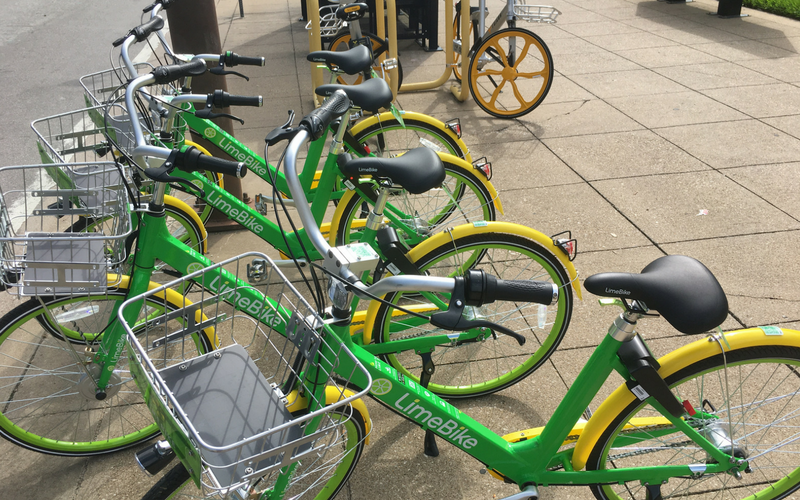As children, we learned that “sharing means caring.” As adults, we’re learning that sharing is just plain smart. To wit: the sharing economy.
In recent years, a sizable proportion of Americans have become far less attached to the idea of ownership. Millennials and Boomers alike, particularly those living in major metropolitan areas such as Dallas, are abandoning the idea of home ownership and opting for upscale rentals that offer endless amenities while eliminating daily hassles. Most of us no longer purchase DVDs but stream our favorite entertainment over services such as Netflix, Hulu and HBO Go instead. No car, even in a sprawling city crisscrossed by multiple highways? No problem. Let Uber and Lyft do the driving.
It was only a matter of time before the bike-share concept took off in Dallas, even though previous iterations of this trend weren’t always convenient. Potential riders often had to locate a dock to access a bicycle and then return it to a dock when finished. However, the newest bike-sharing fleets take advantage of the latest technology. They’re compatible with smartphone apps that take the user through the entire bike reservation process virtually.
Three cutting-edge bike-share companies have recently begun operating in Downtown Dallas.
VBikes is a startup headquartered in neighboring Garland. Their innovative system is both app-based and station-free. To access its slate of eye-catching yellow bikes, download the VBikes app and simply pass your phone over the bike’s smart lock. The cost to ride is a dollar per hour (plus an initial, refundable $99 reservation fee), and riders are limited to 10 hours of bike use per day. VBikes tracks its fleet using GPS, meaning you can find them all over the city. When it’s time to return your rental, you can park it almost anywhere (respecting common sense, of course), lock the back wheel, and be on your way.
Similarly, LimeBike is a San Mateo, California-based company that combines spokes with smart technology. Dallas is the first city in Texas to have access to the company’s (yes) neon green bikes. LimeBike also employs an app that allows users to locate and start spinning their wheels. Use your camera’s phone to scan a QR code or enter the bike’s license plate number to unlock. LimeBikes can be returned to any bike rack or in designated areas. And, if you’re a student, you can take a significant discount — 50 cents for every half-hour of pedaling.
The most recent bike-sharing venture to arrive in Dallas is San Francisco’s Spin. Their orange, Dutch-style (three-gear) bicycles are, again, searchable and unlockable by means of a dedicated mobile app. Spin’s base rate is one dollar per half hour, but, if you’re a habitual user of their services, you can purchase a membership. For $29 a month, you’ll enjoy an unlimited number of 30-minute rides as well as additional perks, such as booking a bike in advance — a smart idea if you don’t want to risk getting stranded somewhere.
All three companies are also looking to be good neighbors, and are exploring partnerships with both the city government and local businesses in the interests of making biking more affordable, attractive and practical for Dallasites. That means sharing data to help the city plan for future infrastructure needs and including bike-sharing privileges in employee benefits packages.
So, why bike Downtown Dallas? In addition to reducing both traffic congestion and your carbon footprint, biking is an excellent way to incorporate more physical activity into your everyday life. And because the bikes are already popping up all over Downtown Dallas, there’s no need for those who commute to haul their own. Bike-sharing can be especially beneficial if you need to run a midday errand and don’t want to deal with parking. And, of course, biking also offers the opportunity to slow down and take in the local scenery from an all new point-of-view.
What are your favorite bikeable routes in Dallas? Which downtown destinations have you visited courtesy of two wheels? Share your biking adventures and bucket lists with us on Facebook and Twitter.


